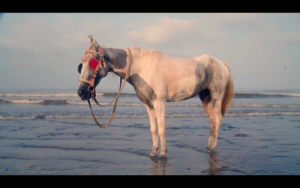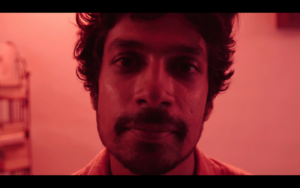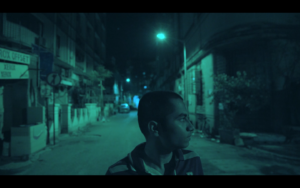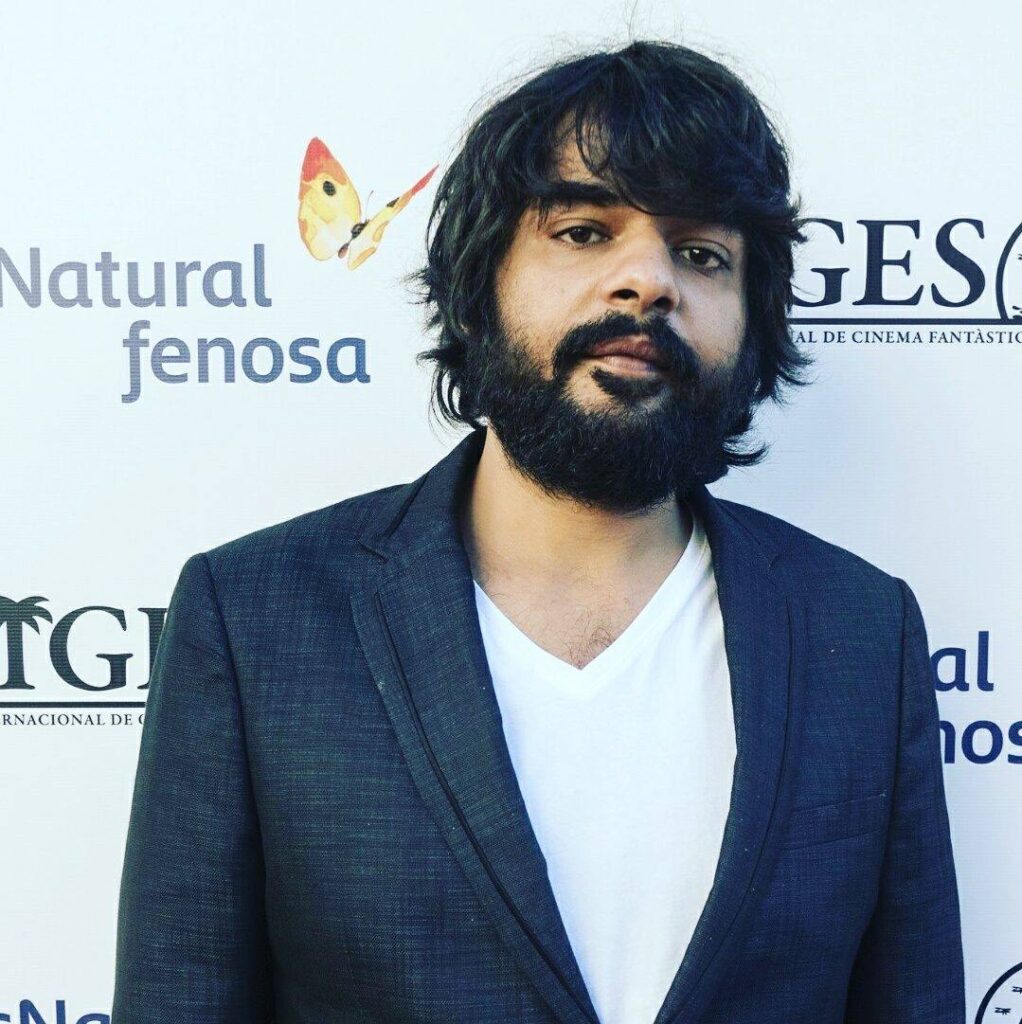NYFA 1-Year Filmmaking Program alumnus Rohit Mittal has just wrapped production on his second independent feature film, “Megalopolis,” with his first, “Autohead,” released worldwide on Netflix.
“Autohead” earned rave reviews and awards at major festivals worldwide — including 49th Sitges Film Festival, 40th Hong Kong International Film Festival, CPH:PIX, and more. “Autohead” attracted attention from major publications like The Hollywood Reporter, Huffington Post, Fangoria, and Al Jazeera before its worldwide digital release on Netflix. And that’s not all: anticipation is already high for “Megalopolis,” which The Reel has highlighted as a smart meditation on a dark side of human nature.
We had a chance to catch up with Mittal in the midst of his busy schedule via email to hear some of his insights on the process of producing his independent features and finding distribution with Netflix.
NYFA: First, can you tell us a little bit about your journey and what brought you to NYFA?
RM: I was always interested in movies and literature, but after high school I had to go to law school because it’s a norm in India to get a degree so that you can get a job. But I was not interested in law. In law school all I ever did was watch movies, a lot of them (mainly foreign films), read books, and I wrote poems, short stories, and I also made short films. But after graduating from law school I had to take up a job.
job.
I worked in a law firm in Mumbai. It was the worst experience of my life. Even then I was making short films over the weekends. After a point it became really frustrating so I decided to quit the job and go to a film school, for two main reasons. One, that I can have a better understating of filmmaking, and the other, to leave the country.
That’s when I got to know about NYFA. I researched a lot, and NYFA was the only place that offered a very practical hands-on training, and they had the one-year program. The idea to make a film every week really excited me, and a friend was already studying here. So I decided immediately to attend this school.
NYFA: Do you have any favorite NYFA moments?
RM: Well, there were many. The best were with the friends I made. And all of them were from different countries, so making films with them was great fun.
 NYFA: What inspired your first feature, “Autohead”? Can you tell us a bit about that production process?
NYFA: What inspired your first feature, “Autohead”? Can you tell us a bit about that production process?
RM: …I wanted to do a character study of a criminal. Also I wanted to explore and question the voyeurism of filmmakers, of films, of the camera. I wanted to question the eye. So yes, with all of this put together I came up with that story.
We did a lot of planning before we started shooting. We planned for almost four months, because we did not have many days to shoot. We shot the whole film in 14 days, so we could not afford to make mistakes or lose time. In those four months of pre-production I also rehearsed a lot with actors and looked for authentic locations.
NYFA: How did your distribution deal with Netflix come about? (And congrats!)
RM: Thank you. Well I got in touch with one of the employees at Netflix. By that time the film had traveled to many festivals, won awards and also got many great reviews. So they got really excited about the film. They saw the film, loved it, and then my sales agent in France and I cracked the deal.
NYFA: What inspired your shift from the documentary style of “Autohead” to the more surreal and poetic feel of “Megalopolis”?
RM: The documentary style in “Autohead” was an integral part of the story, because the story was that there is this documentary crew filming an Aut rickshaw driver in Mumbai who turns out to be a killer. So the form became a part of the storytelling. Which is why I love the mockumentary format.
In “Megalopolis” there is more a formalistic approach. I just wanted to go back to what cinema originally was, that is just visuals and sound. Also I think it is more honest. It is more me. “Autohead” was also honest but it was more angst-driven.
“Megalopolis” is the kind of film I always wanted to make. Also, it’s based on a novel by my favorite novelist of all time, Fydor Dostoyevsky. So I have tried to adapt that in my own way into visuals and sound. And as far as surrealism is concerned, to be honest that’s how I see things. That’s how I see life. Maybe surreal is real. Or vice versa.
NYFA: What were some of your greatest challenges in getting your feature films made? What advice would you offer to students looking to make that leap?
RM: The biggest challenge as we all know is to get the funding. But the way I did it was as independent as things can get.
For the first film I borrowed money from people which was enough to shoot and edit the film. Once I finished editing the film I started showing it around and that’s when I found another producer to finish the film. All of this took me around 10 months or so, including the wait.
The idea is to be as realistic as possible, and it starts with your writing. I wrote those films knowing that there is going to be very little money. I had the budget in mind while writing the script. That way I was more realistic and did not build castles in the air, because to be honest I don’t like to wait.
I don’t have the patience to wait for 10 years to get a big budget for my film, and today it’s possible to create a decent, sellable film with little money. And people made it even 20 or 30 years ago when there was no digital technology. So we have some great examples, and we can follow them and tell a very honest personal story.
 NYFA: Would you say your time at NYFA was at all helpful in preparing you for what you’re doing today?
NYFA: Would you say your time at NYFA was at all helpful in preparing you for what you’re doing today?
RM: Yes. I would say so. That’s purely because of the practical training I had at the school. Also the time I got for myself, living in another country. So I figured what I like and what I don’t like, and what I am good at.
Also I loved to break rules all the time in film school, I enjoyed that a lot and ended up learning a lot. And the biggest and best lessons I learnt were from making bad films. I cherish them. And I experimented a lot. A lot of times I failed, but they were great lessons. Thank god I made mistakes. Film schools are meant for that, to make mistakes.
NYFA: What about the story or themes in “Megalopolis” felt like they needed to be told, now?
RM: …You can say that “Megalopolis” or the big city is a metaphor for the human condition in today’s day and age. The city is the ultimate dream. I don’t know if it’s a good one or a bad one. And everything revolves around the city. The city is the central character. It consumes us all. It may be a monster … So yes, with all this I am trying to understand the violent nature of humanity.
NYFA: Can you tell us a bit about what’s next for you — any upcoming projects or festivals?
RM: I am still finishing the post-production of “Megalopolis.” And hopefully it will travel to festivals. And yes, I am planning to make another film soon. That is February, 2018. I will start work on it as soon as I have finished writing the script.
The New York Film Academy would like to congratulate Mittal on all his recent success with “Autohead” and “Megalopolis” and wish him the best in his future endeavors.
